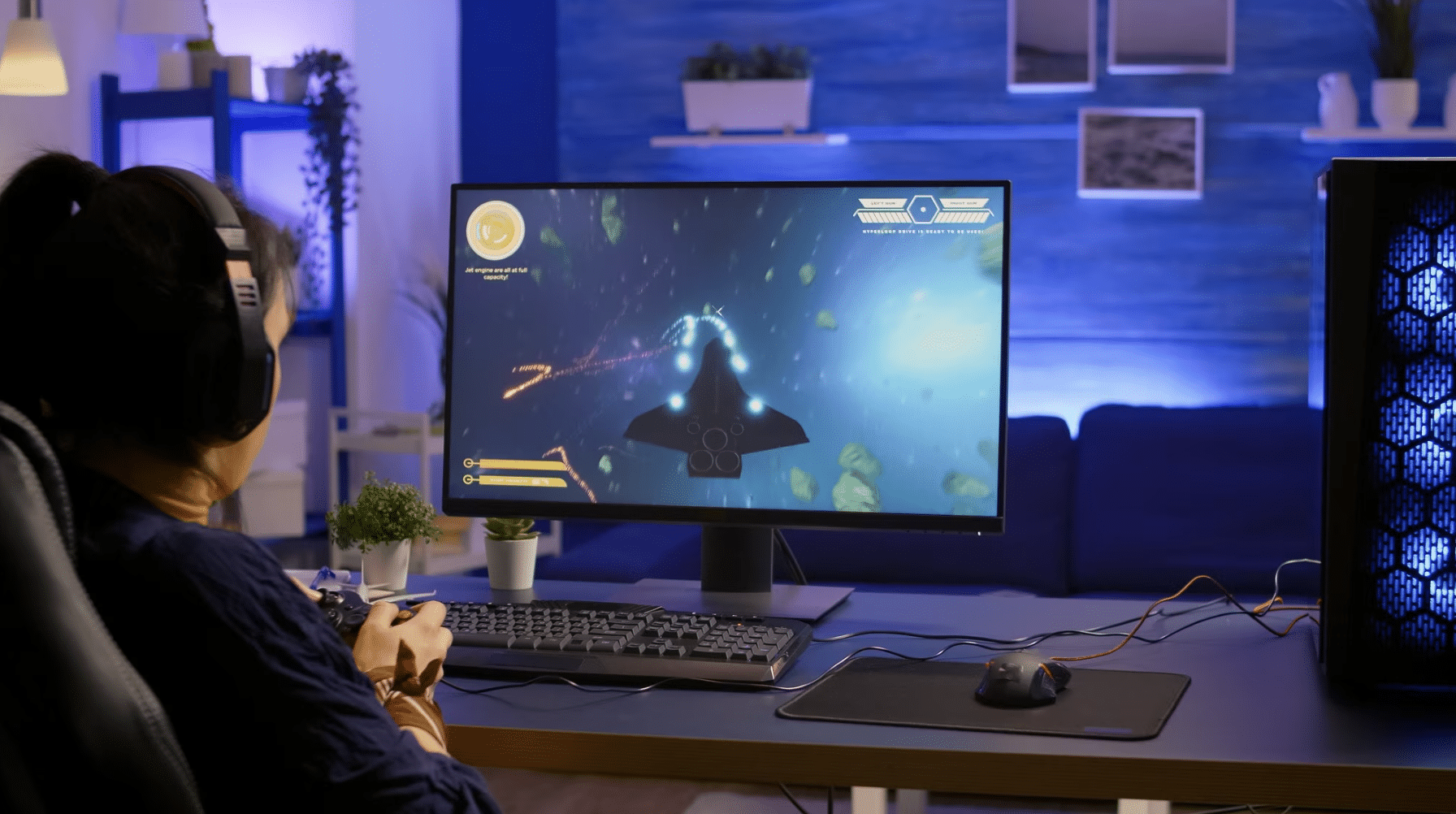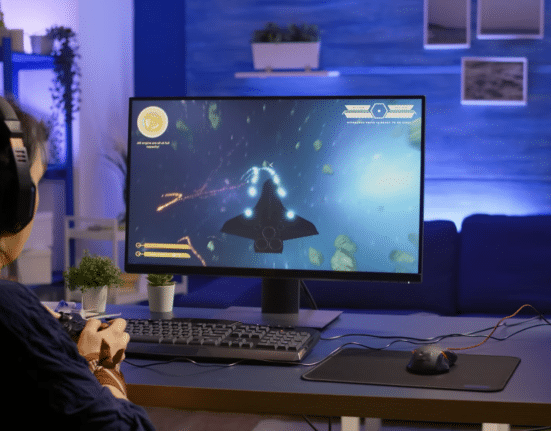From the classic arcades of bygone years to the 3D gaming of modern times, video gaming has always been part of the growing years of every generation. After a long day at school, clicking that controller, flipping that phone, or flocking to the nearest computer shop for an hours-long battle of Counter-Strike or Valorant is simply an irrevocable pastime.
When asked why they do so, young people simply say it’s their form of relaxation. But can gaming really relieve stress?
Gen Z speaks
To understand the disposition of the young generation, republicasia asked student gamers about their gaming habits, what makes them hooked, and how it has affected their daily lives.
Most of them affirmed that indeed, the activity, which mostly commenced as a trial that eventually became a habit or even an addiction, provides them with relaxation. Also, the stories, animations, and overall make-believe of video games provide some escape from reality.
For Gwen Joseph Minon, 24, gaming initially was never really in his system. However, in 2015, he was only invited by his classmates to play online games, and from there, he started to enjoy it as a form of bonding with his friends.
“I play games for an average of 2 hours per day, depending if I have errands to run or places to be. I play almost every day, as long as I am home,” he told republicasia.
He also admitted that what started as a simple hobby has now turned into a costly pastime.
“I’m in the stage where money is being used for in-game content,” he said.
The gameplay, animation, and story are among the reasons that got him hooked, and since the system updates with new content almost every month, this entices him to continue spending.
‘’It has never been a burden since I limit my play time. I only play one game, and that is League of Legends and Valorant,” he said.
Matthew Elijah Ama, 19, considers gaming a form of “escape from the real world and its problems.”
In fact, there are times he gets so immersed in it to the point that ‘’nothing else really matters except the thing that you’ve been doing,” he said.
“Putting in a lot of focus and attention, you really phase out, your environment blurs, only highlighting the gaming process,” he added.
He also confessed to having reached the point of addiction by spending long hours in front of the computer or his cellphone.
“I used to clock in 2 hours minimum, and 6 – 8 hours maximum per day,” he said. But since engaging in better and self-improving hobbies, “it has been considerably reduced to 60 minutes or less as a minimum and maximum of 2-3 hours a day, which only happens on rare occasions.”
What gives him the feeling of being in a trance is the visuality of players performing feats such as “consistently good kill ratios in shooter games and spectacular performances in team-based games like Mobile Legends (Godlikes, Savages, or even supporting).”
Pros and cons
While it may seem that video gaming is all negative, it surprisingly has some ‘’gains,” including learning how to strategize and improving hand and eye coordination, according to pediatrician Annie Ramos.
Of course, there is a bad side too.
Citing the experiences of her students, Ramos said, “‘Yun nga lang, dahil sa pagtingin mo nang matagal [sa screen], nagkakaroon ka ng eye strain, dry eyes, masakit sa ulo, sa leeg, back pain. ‘Yun ang usually na bad side ng gaming.’’
Ramos also mentioned that kids who become addicted to gaming tend to have a short temper.
“Ayun nga, isang sinabi nila ‘yung madaling magalit, kung sila ay natatalo. Depende nga siguro sa game. It’s more on nagiging aggressive sila sa game,” she said.
To mitigate the negative effects of video gaming on an individual, Ramos advised lessening playing time to avoid eye strain and wearing protective gear. She also said gamers should develop self-control to avoid getting emotionally involved.
“Dapat mayroon silang impulse control sa kanilang sarili. Dapat iyon ay game lang, it’s a form of relaxation, meaning hindi na dapat dinadala ng personal, to the point na nakakaapekto sa kanila psychologically,” she said.
No harm to kids’ cognitive abilities
While the idea of kids being addicted to video games might be scary, a recent study found that parents might not exactly need to police their kids’ gadget time since gaming does not cause harm to children’s cognitive abilities.
“Our studies turned up no such links, regardless of how long the children played and what types of games they chose,” said Jie Zhang, associate professor of curriculum and instruction at the University of Houston College of Education who is also a member of the research team.
The research team sought an association between the length of kids’ video game play and their performance on the standardized Cognitive Ability Test 7, known as CogAT – a measure used to evaluate verbal, quantitative, and nonverbal/spatial skills.
May Jadalla, professor at the School of Teaching and Learning at Illinois State University and the study’s lead investigator, noted that “Overall, neither duration of play nor choice of video game genres had significant correlations with the CogAT measures. That result shows no direct linkage between video game playing and cognitive performance, despite what had been assumed.”









